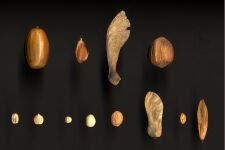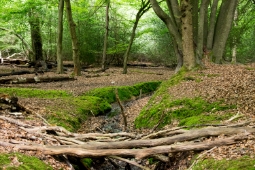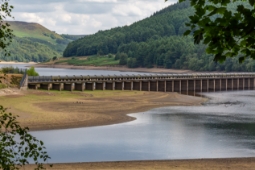Macedonian pine (MCP)
Macedonian pine is a five-needled pine native to the Balkan peninsula. Little planted as a forest species but it has demonstrated potential as hardy, healthy specimens in botanic collections across Britain.
Limited trials in Britain have indicated its productive potential and its apparent resistance to several of the diseases affecting pines. This could mean an increase in importance with climate change, not least if other pine species are further affected by disease. Macedonian pine is listed as near threatened by the IUCN.
Macedonian pine is categorised as a plot-stage species. These are species that have demonstrated some positive silvicultural characteristics at the Specimen-stage and are now subject to further testing and development in a limited number of trial plots.
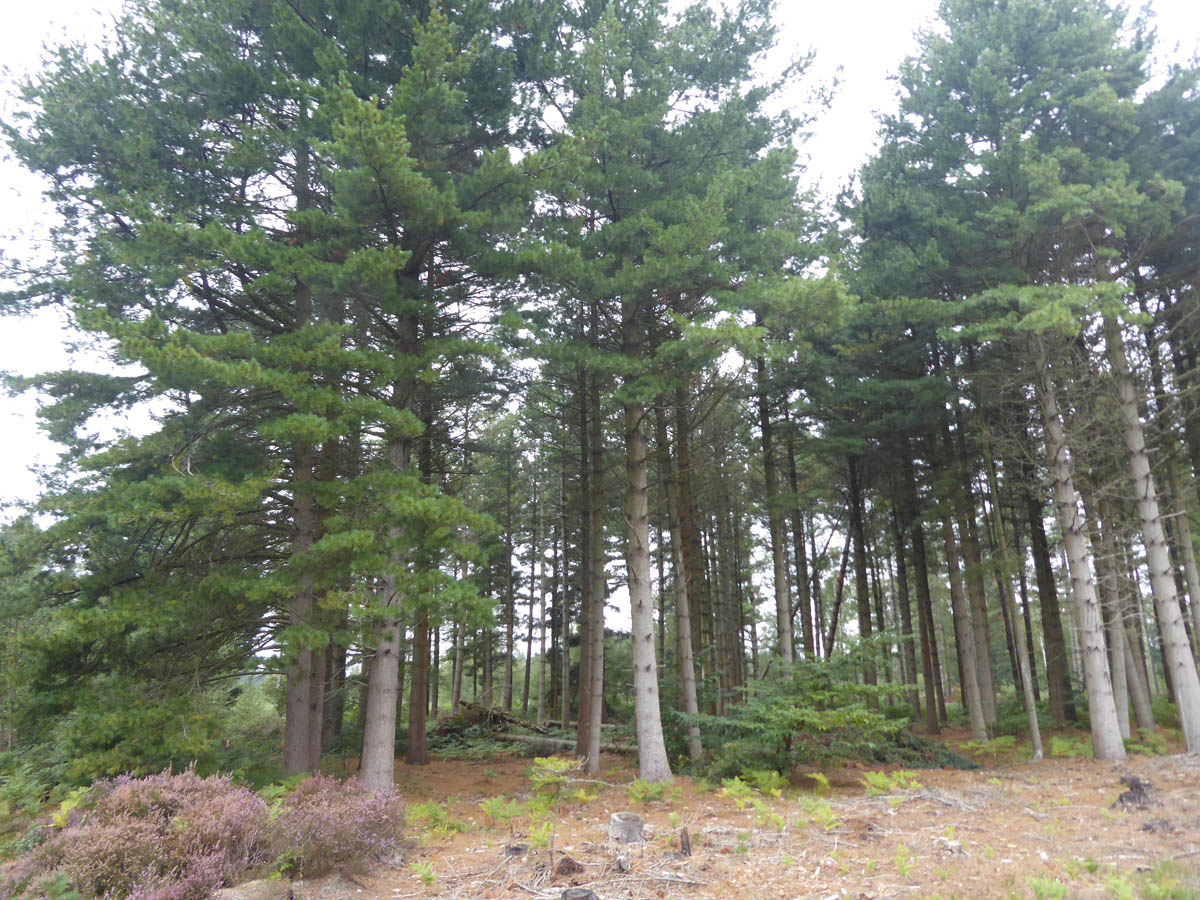
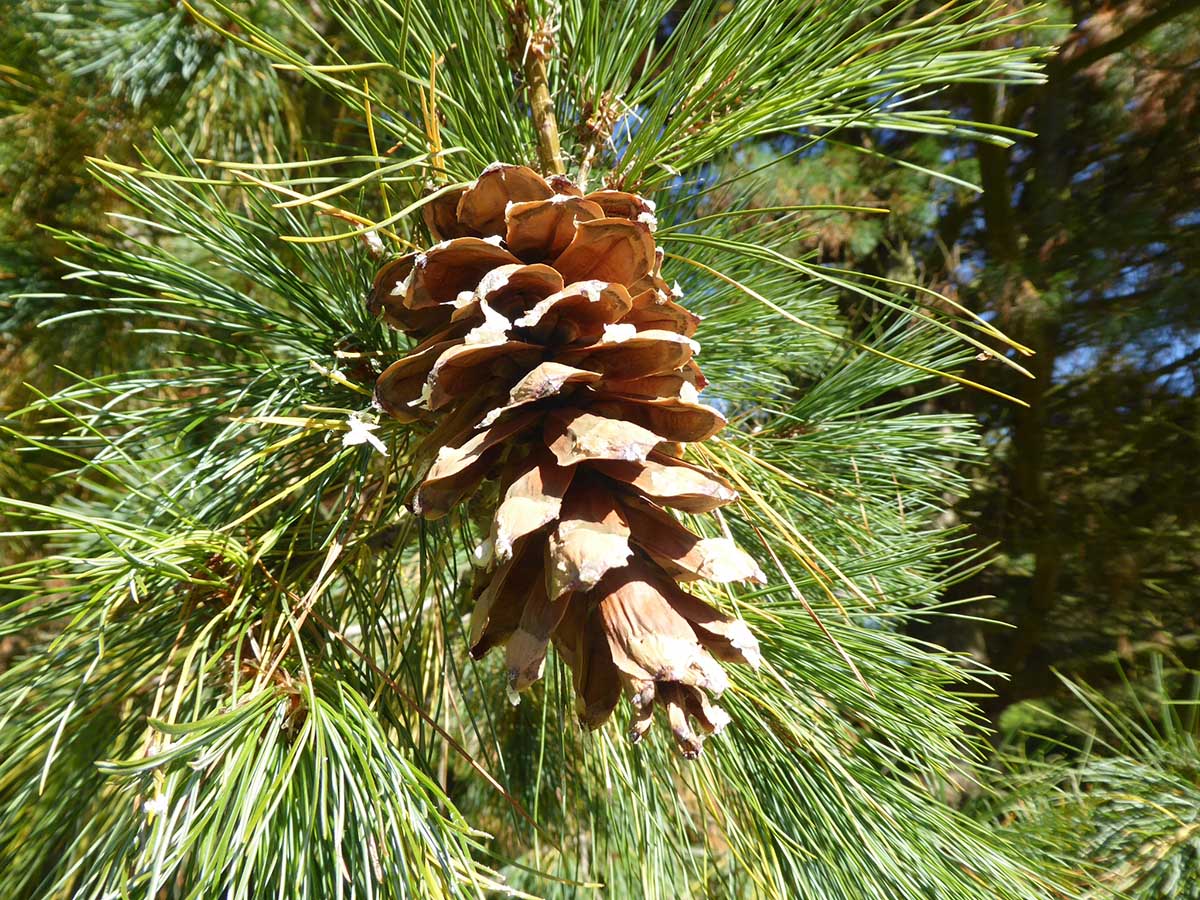
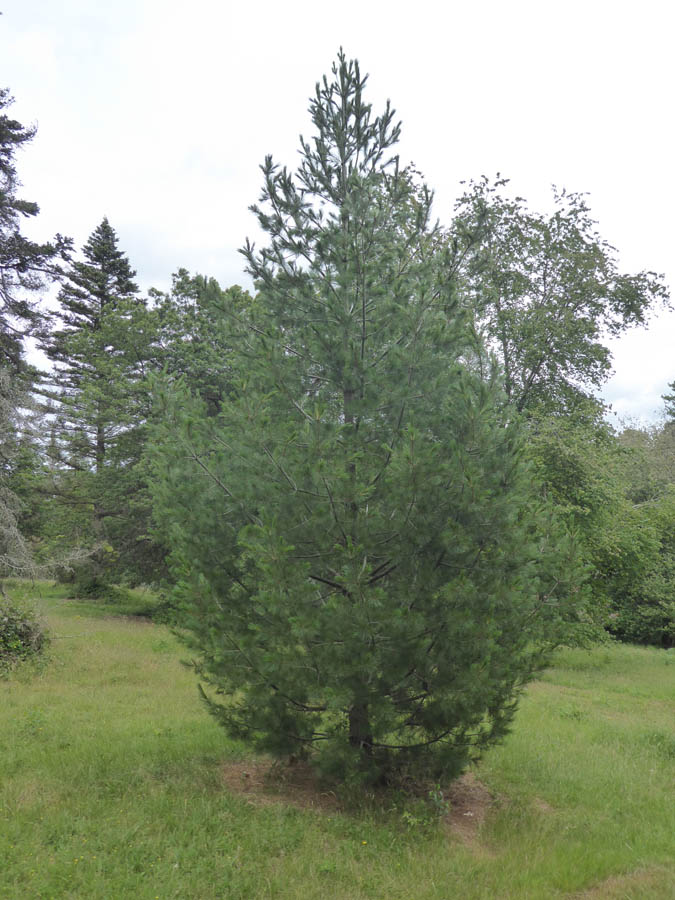
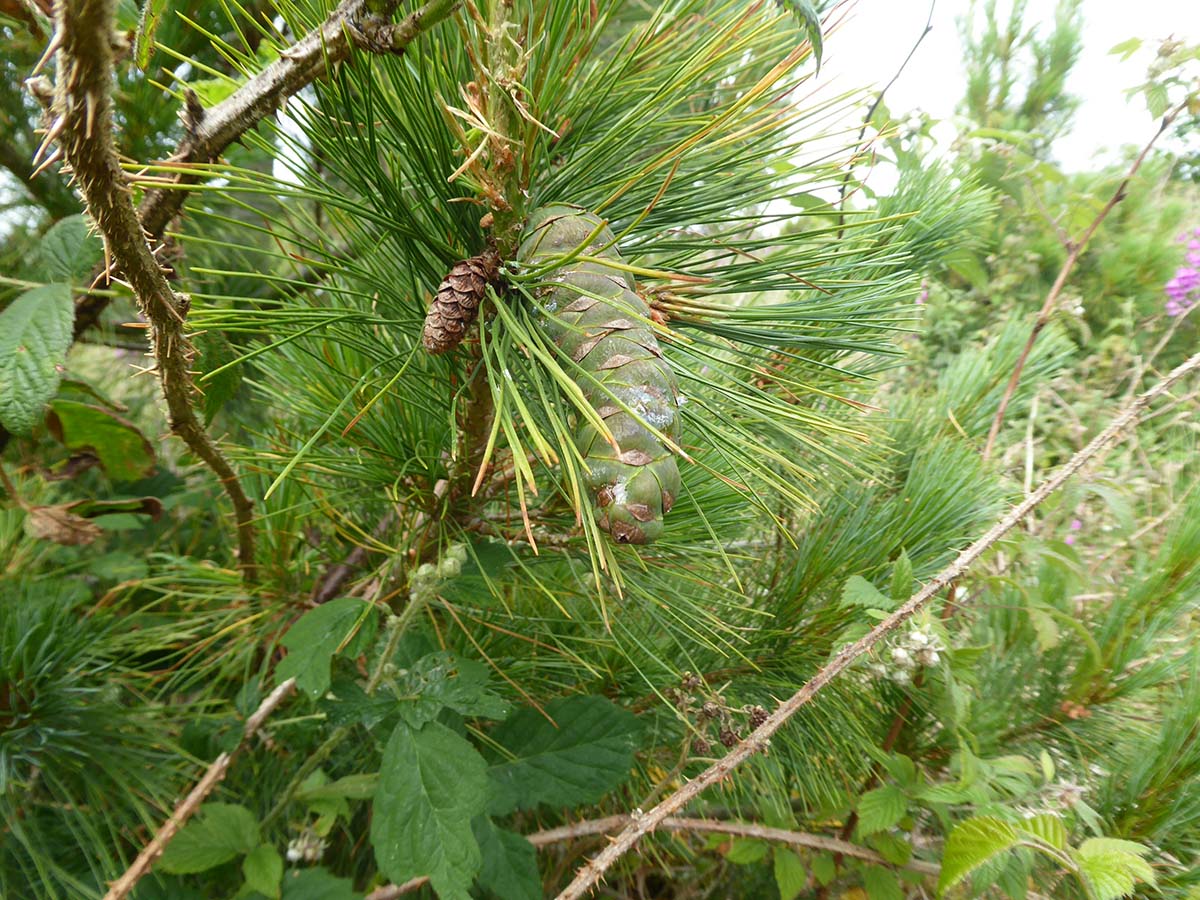
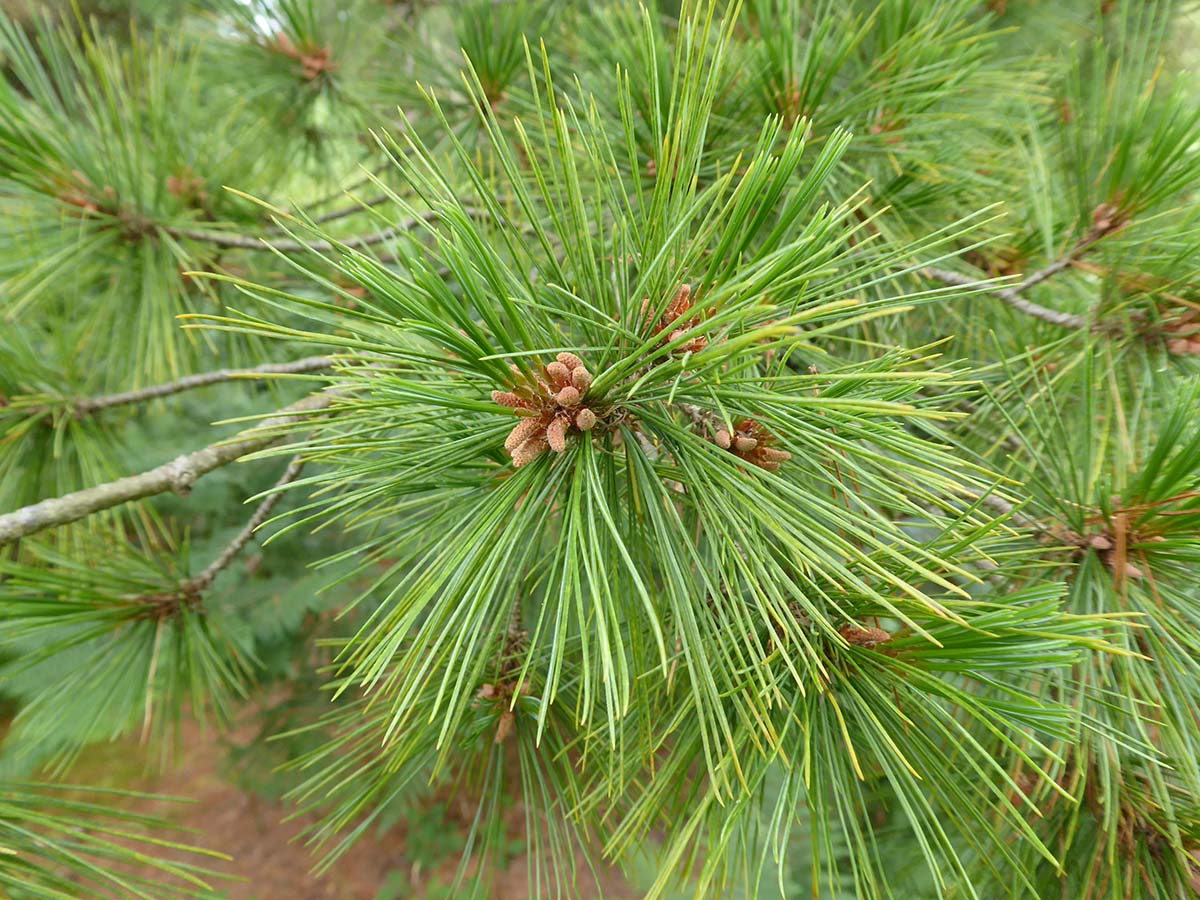
Range
Native to the mountains of the southern Balkans in northern Greece, Albania, Bulgaria and Macedonia. It occupies a total area of no more than 30,000 ha.
Provenance Choice
Limited provenance testing suggests little variation in performance, so suitable seed sources are either from the native range or from good British stands.
Key Properties
Site Requirements
In trials Macedonian pine has shown good growth on a wide range of soil moisture from flushed peats through to podsols and sand dunes and from poor to medium soil nutrient regimes. In its natural range it is usually found on north-facing slopes on siliceous soils (soils containing a high proportion of silicate quartz sands) but rarely on carbonate soils.
Cold hardy and frost tolerant and withstands moderate exposure. Not known to be particularly drought sensitive.
Further detail on the site requirements of Macedonian pine in current and future climates can be examined using the Forest Research Ecological Site Classification Decision Support System (ESC).
ECOLOGICAL SITE CLASSIFICATION TOOL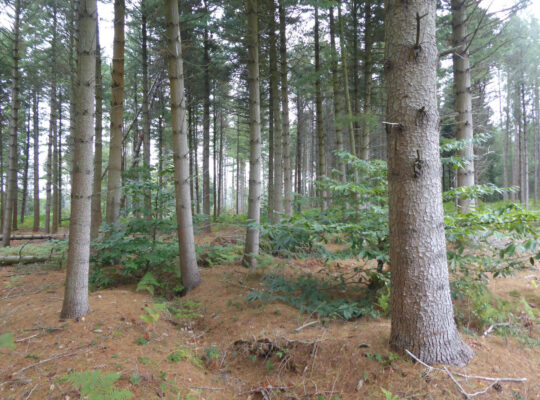
Silviculture
Macedonian pine has the potential to become a big tree with records from gardens up to 40 m tall. Seed germination is poor or delayed and it can take several years for a nursery to produce a tree suitable for planting. Once planted the tree grows very slowly and are generally dense and bushy in character. A noticeable leader may only start to appear after 5 or 6 year. These initial issues may be the reason Macedonian pine has not been more widely produced and planted. However, with good weeding and patience once established the tree is capable of sustained growth over many years.
Macedonian pine has intermediate shade tolerance and from anecdotal evidence natural regeneration can occur if site conditions suit. This ability could make it suited to continuous cover forestry where shade from overstory trees is light.
The bark of the tree is thin for many years and makes it particularly susceptible to being stripped by deer. Seed cones appear to be favoured by squirrels and are often stripped before the cones are mature.
Pests and Pathogens
Macedonian pine appears to be resilient to a number of pests and pathogens including Panolis flammea (pine beauty moth), Dothistroma septosporum (red band needle blight) and, most significantly, Cronartium ribicola (white pine blister rust) which affects North American 5-needle pines. Like other pine species, Macedonian pine is likely to be affected by Heterobasidion annosum (conifer root and butt rot), especially on drier sites with mineral soils.
See our other tools and resources
Further Resources
External
In addition to the general sources of information for species the following are useful for Macedonian pine.
Alexandrov, A.H. and V. Andonovski. 2011. EUFORGEN Technical Guidelines for genetic conservation and use of Macedonian pine (Pinus peuce). Biodiversity International, Rome, Italy. 6 pages.
Lines, R. (1985) The Macedonian Pine, (Pinus peuce Grisebach) in the Balkans and Great Britain. Forestry 58(1): 27-40
Savill, P. and Mason, B. (2015) Pinus peuce Grisb., Macedonian or Balkan pine. Quarterly Journal of Forestry 109(4): 245-252
Wilson, Scott McG. (2011) Using alternative conifers for productive forestry in Scotland. Forestry Commission Scotland, Edinburgh.


